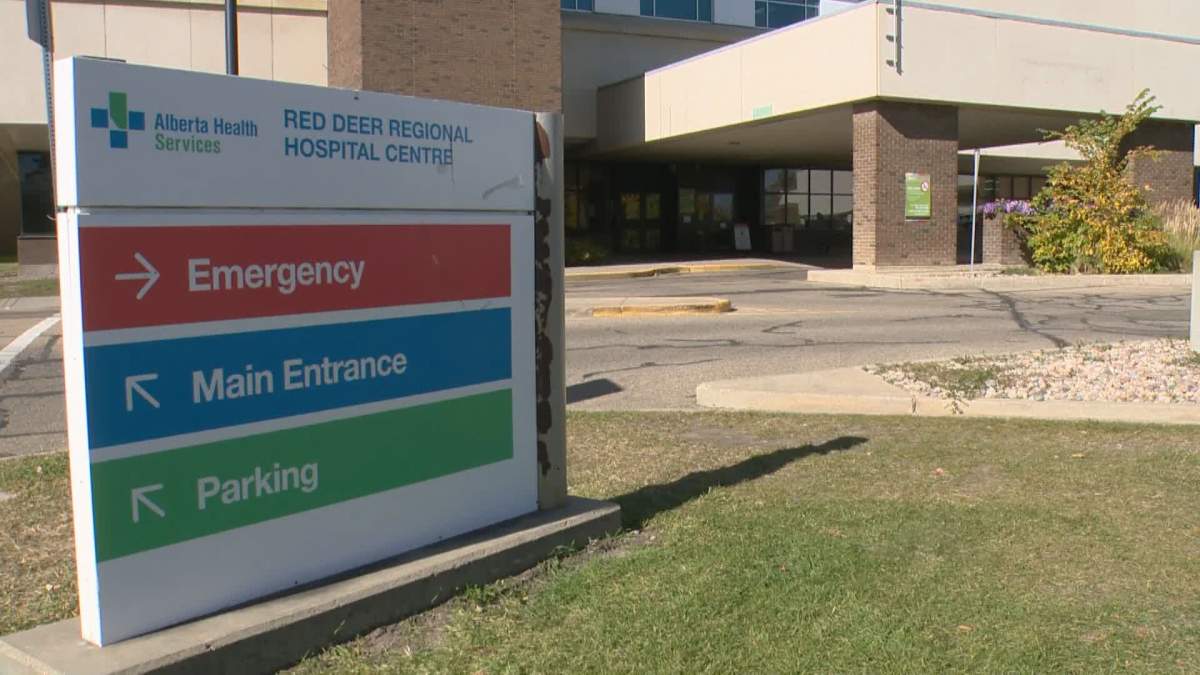Several of the Red Deer Regional Hospital’s top doctors have penned a letter to Alberta’s health officials saying its surgery program could be on the “brink of collapse.”

According to the letter, the hospital is seeing several resources limited, and it’s impacting the hospital’s operating rooms.
The letter reads, “If urgent action is not taken to rectify the shortage that we are facing, we will be unable to continue caring for the nearly 500,000 central Alberta residents who depend on our center for surgical care.
“The repercussions of such a collapse would be catastrophic for both the health system and for patient care, and we need immediate measures to be taken to prevent this.”
Red Deer hospital urologist Dr. Ravin Bastiampillai said those “repercussions” could be felt as early as this month.
“We could get to the point in October where we won’t have the capacity or the capability to be able to offer emergency surgeries,” Dr. Bastiampillai said.
“And that would be potentially very significant and potentially catastrophic for the health and wellbeing of central Alberta patients.”
While he said there are enough surgeons, he adds there is a lack of anesthesiologists and other surgery support staff.
“You need all three of those components to run a successful operation and if any one of those components is not available, you can’t run that procedure.“
Because of the shortage, many elective surgeries have been postponed, and soon, it could impact emergency surgeries altogether.

Get weekly health news
Anesthesiologist Dr. Arun Anand said part of the problem stems from departing staff, who left the hospital for various reasons.

“There’s been a shortage of aesthesis for about two years and I don’t think that’s really been taken super seriously to try and retain and recruit people,” Dr. Anand said.
According to Dr. Anand, other hospitals he’s worked at average about 10 emergency surgeries daily. However, in Red Deer, that number is as high as 60.
And with the anesthesiologist shortage, it’s left the on-call sheet towards the end of October empty — meaning no anesthesiologists, no surgeries.
“It’s quite a dire situation with what’s happening at the end of October and I think we really need to take some action,“ he says.
The urgent, five-page letter was addressed to Minister of Health Jason Copping as well as to AHS, and signed by six of the hospital’s chiefs: Dr. Glen Vajcner, Dr. Krishna Maragh, Dr. Christopher Cham, Dr. Arone Pabbies, Dr. Rodrigo Neira, and Dr. Stephanus Van Zyl.
These doctors are asking for emergency funding to recruit more anesthesiologists, as well as a “review of stipends and overhead relief” to retain anesthesiologists and surgeons at RDRHC.
They’re also looking for increased training positions for nursing and anesthesia.
When asked about what will happen if they don’t get the support they need, Dr. Anand said he’s unsure.
“I’ve never heard of this happening anywhere else and the fact that we got to this point,” said Dr. Anand.
“How did we get here, how did we even let it get to this point? That’s the biggest concern.”
AHS says it’s working on further supports
In an emailed statement to Global News, the health ministry said there are no planned diversions for surgeries at RDRHC, and he is hopeful none will have to happen.
“AHS is working on multiple fronts to support the surgical program, as well as anesthesiology, at RDRHC to help address staffing challenges, including vacancies and gaps in the on-call schedule,” a spokesperson from the health minister’s office said.
“Job offers have been extended to two new anesthesiologists for RDRHC in the last week and another five recruits are in various stages of assessments and credentialing. Two more positions are also in the process of being posted.”
Meetings with leadership take place on a continual basis to review recruitment efforts, surgical and referral wait lists, as well as operating room time allotments, the statement said.
The ministry added that along with a push for recruitment and retention to the Red Deer hospital, officials have implemented a variety of approaches that should help.
Those include an income guarantee for anesthesiologists, a reworking of the operating room schedule with input from the anesthesiology team to help reduce nighttime on-call levels to support work-life balance, signing bonuses and reimbursement for relocation along with paid site tours, collaboration with rural surgical sites in the central zone to help increase their capacity for emergency cases in an effort to take some pressure off the staff in Red Deer, among other things.
“This challenge is not unique to Red Deer. Healthcare jurisdictions across Canada are facing challenges in recruiting healthcare professionals, including anesthesiologists,” the statement said.




Comments